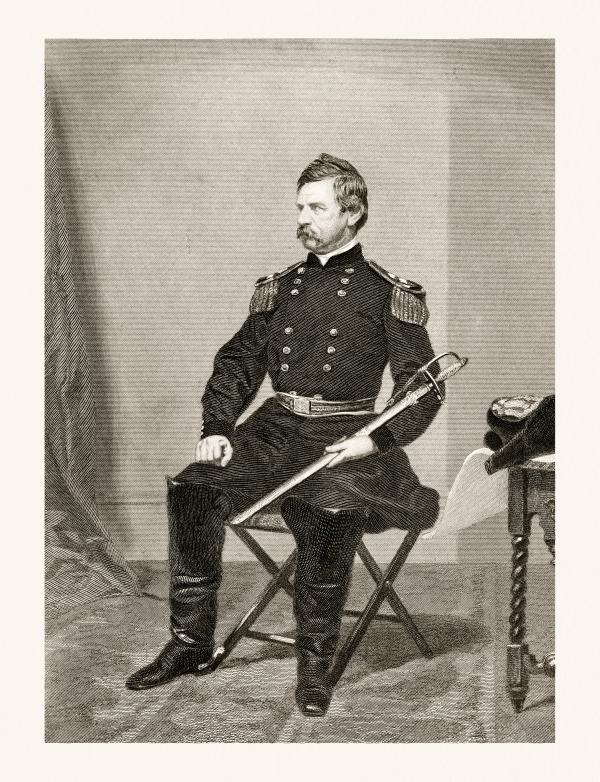KID REPORTERS’ NOTEBOOK
A New Speaker in the House


In early January, it took 15 rounds of voting for Republican Kevin McCarthy to become Speaker of the House of Representatives.
On January 7, newly-elected Speaker of the House Kevin McCarthy took the gavel in the Capitol building. “I never thought we’d get up here,” he said, smiling. It was after midnight. McCarthy’s bid for leadership of the United States House of Representatives had taken five days and 15 rounds of voting.
McCarthy, a Republican, has represented California in the House since 2006 and held a variety of leadership roles. He now replaces Nancy Pelosi, a Democrat, as Speaker. It is one of the most powerful jobs in the U.S.
McCarthy became the frontrunner for Speaker after House Republicans won a slim majority in the 2022 Midterm Elections. But his battle to take the gavel took days of open, sometimes hostile, disagreement among members of his party.
McCarthy is no stranger to controversy. After the insurrection at the U.S. Capitol on January 6, 2021, he criticized former President Donald J. Trump, also a Republican. McCarthy said that Trump had been wrong to encourage a violent attempt to overthrow the government. Weeks later, McCarthy changed his mind. He visited Trump and pledged support for the disgraced former President, who is still being investigated for violating the Constitution.
To better understand the Speaker’s role, I sent questions to Jenna Bednar via email. Bednar is a professor of political science at the University of Michigan in Ann Arbor. Her responses have been edited for length and clarity.

The Speaker of the House is second in line to the presidency and wields tremendous power, controlling laws that are brought up for a vote.
What is the Speaker’s role?
The Speaker is the leader of the U.S. House of Representatives and presides over the members’ debates and meetings. A Speaker is responsible for maintaining order, recognizing members to speak, and announcing legislative decisions. Speakers hold so much power because they set the agenda for Congress. They determine which bills are brought to the floor for a vote and have the ability to shape the legislative [law-making] priorities of the House. The Speaker is second in line to the presidency, after the Vice President.
Most bills introduced by House members never get considered. By selecting which bills to bring forward, the Speaker decides what Congress will, and will not, do for the American people.

Republican Representative Nathaniel P. Banks of Massachusetts, shown here in an 1862 engraving, became Speaker of the House in 1856 after a record 133 rounds of voting.
We haven’t seen such a dramatic battle for Speaker in the modern era. Why was McCarthy’s election such a challenge?
This was unusual in the modern era. For the past 100 years, the Speaker has been elected on the first ballot. But in the first half of our country’s history, the Speaker elections were much more openly contentious [disputed]. In late 1855 and early 1856, it took 133 rounds of voting for Nathaniel P. Banks to be elected Speaker. Multiple rounds are an indication that the party is divided, and that its membership is not afraid to make that division publicly known.
Students often deal with bullying. Were Americans witnessing that when they watched the voting in Congress?
It’s interesting that you would draw a parallel between the current political behavior and the trauma of bullying. Politics has always been a world of competing interests and power plays. But on the surface, the conduct has been polite and respectful of the opposition. In recent years, decorum [courteous behavior] has often been set aside, with politicians being openly disrespectful of one another.

The dome of the U.S. Capitol building in Washington, D.C.
You once said, “The internal fighting means that no Republican vision will emerge from Congress.” Is this dangerous for the American people?
Speaker McCarthy will not be able to credibly present a unified or coherent Republican Party platform to the American public. The more extreme members of his party have put him on notice that they will hold up his agenda unless it includes issues they care about. Without a strong agenda from Congressional Republicans, presidential candidates can present their own vision without contradicting the party.
Whether this is dangerous for the American people depends on your perspective. It opens opportunities for right-leaning candidates like former President Trump and Florida Governor Ron DeSantis, should he decide to run. But it also creates an opportunity for potential centrist candidates like former Maryland Governor Larry Hogan to offer himself as a contrast to more extremist candidates.
It seemed clear that Speaker McCarthy wanted the job, so I’d imagine he is feeling pretty good. Compromises within a party are always an issue with Speaker of the House elections. It’s just that this time, the compromise played out in public, with the extreme members showing they weren’t afraid to go against the Speaker.
Most of the American public is centrist. We’ll see whether this compromise and the resulting shift rightward affect the Republicans’ ability to convey a message that appeals to most Americans.
